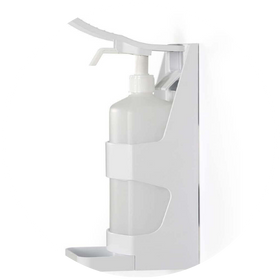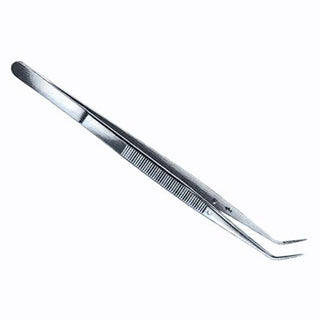In the evolving landscape of dental care, the ability to preserve natural teeth through advanced treatment methods is more valued than ever. Among the most critical procedures for this purpose is endodontic treatment, more commonly known to patients as a root canal. This clinical process relies heavily on the precision and performance of endodontic instruments, which are essential for accessing, cleaning, and sealing the inner anatomy of the tooth. Supporting tools such as mouth props further enhance both clinician efficiency and patient comfort, making them indispensable components of any endodontic setup.
At Medilab, we understand that dental professionals depend on high-quality instruments to deliver reliable outcomes. Our curated range of endodontic instruments, including Mouth Props, is designed to meet the demands of modern practice across clinics, surgical centres, and educational facilities in Australia.
What Is Endodontic Treatment and Why It Matters
Endodontic treatment is required when the pulp tissue inside a tooth becomes infected or inflamed, usually due to deep decay, repeated dental procedures, cracks, or trauma. The goal of the procedure is to remove the damaged pulp, disinfect the internal space, and seal the tooth to prevent future infection. This process not only alleviates pain but allows patients to retain their natural teeth instead of resorting to extraction.
According to Healthdirect Australia, root canal treatment is a common and effective procedure that can save teeth that would otherwise be lost. A successful root canal restores the function and appearance of the tooth while preserving the surrounding bone and soft tissue. For dental professionals, having access to reliable and sterile instruments is crucial to ensure clean canal preparation and long-term success.
The Role of Endodontists in Complex Dental Cases
While many general dentists are trained to perform root canal treatments, some cases require the expertise of a specialist. Endodontists are dentists who have completed additional years of training specifically focused on the inner structures of the tooth. They are often consulted in cases involving blocked canals, retreatments, or unusual tooth anatomy.
The Australian Dental Association explains that endodontists are equipped with advanced imaging, microscopic tools, and specialised instruments that allow them to handle complex and delicate procedures with greater precision. Tools like rotary files, apex locators, and ultrasonic tips are part of the standard instrument set, but supportive aids such as mouth props also play a vital role in ensuring treatment accuracy.
Mouth Props: Small Instruments That Make a Big Difference
One of the most overlooked but essential tools in endodontic care is the mouth prop, sometimes referred to as a bite block. These devices are placed between the teeth to keep the mouth open during long or complex procedures. For clinicians, mouth props improve visibility and access to posterior teeth while reducing the risk of sudden jaw movements that could compromise treatment. For patients, they reduce muscle strain and fatigue, especially when undergoing treatment for an extended period.
Mouth props are particularly important in pediatric dentistry, sedation dentistry, and for individuals with limited ability to keep their mouth open unaided. Their use can help streamline procedures and significantly reduce patient discomfort. That’s why Medilab’s range includes mouth props made of soft yet durable material, designed for repeated use in a busy clinical environment.
How Root Canal Treatment Saves Natural Teeth
The primary purpose of endodontic therapy is to eliminate bacteria from the infected root canal, prevent reinfection, and save the natural tooth. A study summarised by Hadfield Family Dental reinforces the importance of root canal therapy in maintaining not only the structure of the tooth but also the surrounding tissues and bite alignment.
Extracting a tooth may seem like a simpler solution to some, but it often leads to other complications, including shifting teeth, bite imbalance, and the need for prosthetics. Root canal treatment, on the other hand, supports long-term oral health, functionality, and aesthetics, especially when performed with the right tools.
Best Practices for Preventing Tooth Decay
The best-case scenario is avoiding the need for endodontic treatment altogether. Preventive care remains the cornerstone of good oral health. Key strategies include regular brushing and flossing, professional cleanings, a balanced diet, and the use of fluoride toothpaste.
The Australian Institute of Health and Welfare reports that daily brushing with fluoride and routine dental visits are among the most effective methods for preventing tooth decay. For patients at higher risk, such as children or the elderly, dentists may also recommend fissure sealants and diet counselling.
For dental practitioners, offering guidance on preventive care and using high-quality diagnostic tools during check-ups can go a long way in reducing the incidence of pulp disease and the need for root canal treatment.
Endodontic instruments are not just tools; they are precision-engineered devices that enable dentists and specialists to perform one of the most important tooth-saving procedures available today. Whether you are dealing with a straightforward root canal or a complex endodontic retreatment, having the right instruments, including supportive aids like mouth props, can significantly improve outcomes.
Medilab proudly supplies a comprehensive range of endodontic instruments tailored to the needs of modern dental practices across Australia. Explore our collection today and equip your clinic with the tools that help preserve smiles and deliver outstanding patient care.
References
- Australian Dental Association. (n.d.). Why choose an endodontist. Retrieved from https://www.anzae.org.au/why-choose-an-endodontist
- Australian Institute of Health and Welfare. (n.d.). Oral health and dental care in Australia: Preventative strategies. Retrieved from https://www.aihw.gov.au/reports/dental-oral-health/oral-health-and-dental-care-in-australia/contents/preventative-strategies
- Healthdirect Australia. (n.d.). Root canal treatment. Retrieved from https://www.healthdirect.gov.au/root-canal-treatment
- Hadfield Family Dental. (n.d.). How does root canal treatment save a tooth?. Retrieved from https://hadfieldfamilydental.com.au/blog/how-does-root-canal-treatment-save-a-tooth





